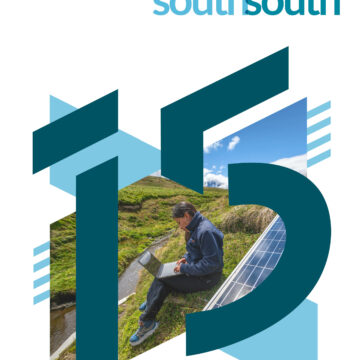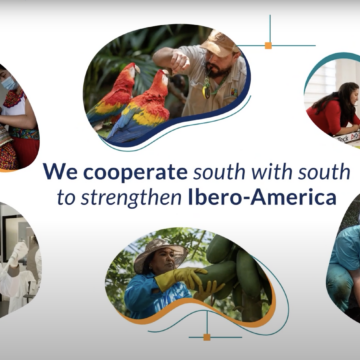Methodological progress on Ibero-American SSC: scholarships as a new type of initiative
The Ibero-American space has promoted a process to collectively design a conceptual and methodological framework for this cooperation, based on consensus.
In recent years, Ibero-American countries —together with the Ibero-American Program for the Strengthening of South-South Cooperation (PIFCSS by its Spanish acronym) and with the technical leadership of SEGIB— have been working “on a conceptual and methodological approach to (SSC and Triangular Cooperation) scholarships in order to improve their registration and systematization in SIDICSS” and consider them as a new type of initiative.
This exercise was driven by the recognition that scholarships were being registered in SIDICSS in a very heterogeneous manner, without a unified criterion that would allow their correct systematization. These experiences were often related to the training of human capital; however, additional information was not available in order to determine if it were actually scholarships. This could lead to inaccurate interpretations making this instrument impossible to measure.

In this context, Ibero-American countries agreed on setting a series of minimum common criteria to approach this type of initiative and make its importance in South-South and Triangular Cooperation visible. In line with the above, the exercise promoted in the Ibero-American space aimed to make progress on:
- A definition and the design of a conceptual framework of what is understood to be a South-South and Triangular Cooperation scholarship;
- An agreement on how to register them and on whether to consider (or not) a different approach with respect to other cooperation initiatives (actions, projects and programs);
- A consensus on the necessary information that has to be registered on each scholarship’s record.
The second step would involve making the necessary changes in SIDICSS for this to be properly uploaded.

Considering all the above, the Ibero-American space began its work to materialize the political mandates (adopted in the successive PIFCSS’ Intergovernmental Councils), through a series of technical activities, mainly workshops. The need to promote a specific Working Group on Scholarships was also soon identified, of which Chile, Colombia, Costa Rica, Honduras and Mexico have been members since its inception. As a result of this effort, countries agreed that a South-South and Triangular Cooperation scholarship is defined based on:
- The participation of at least two countries that act as provider and recipient.
- The contribution to the training of human capital for inclusive and sustainable development.
- The existence of a financing mechanism to facilitate access to training.
- A framework of a call for applications, which must set the conditions to award the scholarship.
Indeed, the call for applications is assumed as the registration unit of the scholarships. Likewise, scholarships are considered a new type of initiative, with a different approach from that of cooperation actions, projects and programs. The definition of other aspects that are understood to contribute to a better categorization of the scholarships (type of training, target population, duration, face-to-face or virtual format, number of scholarships awarded, among others) are part of the associated information which should be registered to better understand this instrument.
At this point, in 2024 and in order to test these conceptual and methodological agreements before making changes in SIDICSS, some countries began a pilot exercise to register the calls for applications of the 2022-2023 period and the number of scholarships in their framework. Argentina, Brazil, Cuba, Ecuador, El Salvador, Guatemala, Paraguay, Peru and Portugal also participated in this exercise, in addition to the countries of the Working Group. A specific analysis of South-South and Triangular Cooperation scholarships, which is expected to be published in the first quarter of 2025, will be the final outcome of this process.
January 2025
***
Source: SEGIB and Working Group on Scholarships (+countries that joined the pilot exercise).
Photos: SEGIB and Felipe Gregate en Unsplash

